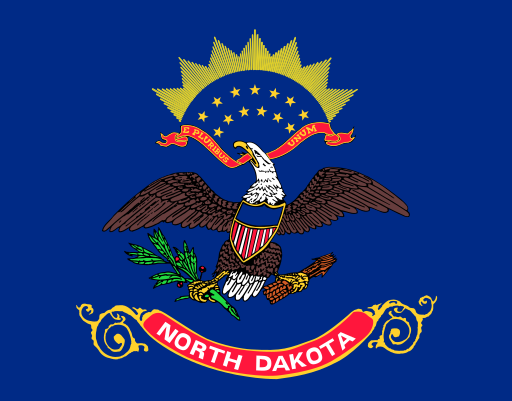Voters in North Dakota will decide on an initiative to establish term limits for state legislators and the governor in November. In March, the Secretary of State Al Jaeger (R) announced that proponents did not submit a sufficient number of valid signatures. However, proponents appealed to the North Dakota Supreme Court. On Sep. 7, the court ruled 5-0 that the initiative must be placed on the ballot for November 8.
North Dakota for Term Limits, the campaign behind the measure, submitted 46,366 signatures to the North Dakota secretary of state’s office on February 15. To qualify for the ballot, 31,164 of the signatures needed to be valid.
On March 22, Jaeger announced that proponents did not submit a sufficient number of valid signatures and that the measure would not appear on the ballot. Jaeger found that of the 46,366 signatures submitted, 17,625 were valid — 13,539 less than the requirement. Signatures were invalidated for notary errors; address, full name, and date omissions; duplicate signatures; and for petitions signed by those with out-of-state addresses. The secretary of state’s office and the North Dakota Bureau of Criminal Investigation said they suspected signatures of being forged and that petition circulators were being paid per signature, which is against state law. Jaeger invalidated 21,634 signatures that had been notarized by Zeph Toe, a notary public, after finding that some of the signatures notarized by Toe contained inconsistencies.
Sponsors of the measure wrote a letter to Secretary of State Al Jaeger saying that he rejected signatures unlawfully, stating, “In your opinion, roughly 29,101 of the signatures submitted by the Committee were invalid for various reasons. Just five days prior, in a meeting in your office with Jared Hendrix (chairperson of the Committee), you indicated that your office had determined that roughly 7,000 signatures were invalid and would not be counted. An additional 22,000 signatures were ‘disqualified’ in the five days between March 17 and March 22. No expense was spared in attempting to disqualify this petition, and the full scope of the use of taxpayer resources to frustrate the will of the electors is only beginning to come into focus. The state’s validation process here should be subject to a full inquiry.”
On Aug. 12, initiative sponsors asked the North Dakota Supreme Court to order Secretary of State Al Jaeger to place the measure on the November ballot, arguing that Jaeger improperly invalidated signatures. The state Supreme Court ordered a district court to review the claim, which found that Jaeger was correct in invalidating the signatures. District Judge James S. Hill wrote, “Because of these obvious errors, Secretary Jaeger could not, with confidence, state that the other petitions notarized by Toe were without errors or fraud. Therefore, he determined that all of the affidavits notarized by Toe were untrustworthy and none of them could be counted.”
On Sep. 7, the state Supreme Court reversed the district court’s ruling, finding that Jaeger misapplied the law when invalidating the signatures, writing, “The Secretary of State applied the logical inference of the common law maxim ‘false in one thing, false in all things.” The court found that over 15,000 invalidated signatures should have been certified; therefore, proponents had submitted enough signatures to qualify the measure for the ballot.
The initiative would limit the governor to serving two terms. It would limit state legislators to serving eight years in the state House and eight years in the state Senate. A member of the House or Senate could not serve a term or remaining portion of a term if it would cause the legislator to have served a cumulative time of more than eight years in the chamber. The measure would only apply to individuals elected after approval of the amendment. The measure would provide that the amendment’s provisions can only be amended by citizen-initiated measures and not by the Legislature.


